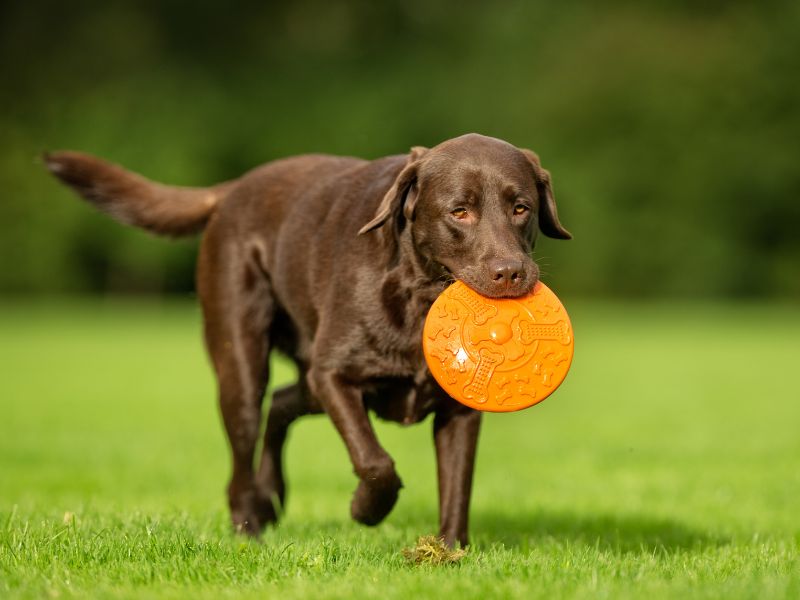
Miniature Labradors, a downsized version of the popular Labrador breed, are quickly capturing the hearts of dog enthusiasts seeking a smaller furry friend. These tiny dogs are specially bred to encompass all the lovable characteristics of a Labrador in a more compact body, making them an excellent option for families with limited space or activity levels. Mini Labradors are the result of two purebred Labrador parents possessing the dwarfism gene, resulting in dogs with shorter limbs. Despite their smaller stature, these mini Labs retain the friendly, intelligent, and devoted nature that has endeared Labradors to families worldwide. Prospective owners considering adding a miniature Labrador to their family should understand the breed’s specific requirements and potential health concerns. It is essential to conduct thorough research and factor these considerations in before deciding to welcome a mini Lab into your home. With proper care and love, these pocket-sized companions can bring happiness and companionship to any household.

A pint-sized pup known as the dwarf Labrador, or “Mini Lab,” is a cute and cuddly version of the beloved Labrador Retriever breed, adored for their friendly and loving personality. These charming dogs get their small size from a genetic condition called dwarfism, which gives them all the great qualities of a regular Labrador in a tiny package. Standing at around 20 to 22 inches tall and weighing between 30 to 50 pounds, Mini Labs may be smaller in stature but are just as affectionate and devoted as their standard counterparts. Whether born with dwarfism or naturally small, these Mini Labs are perfect for anyone looking for a more compact canine companion. Despite their size, they still need the same amount of exercise and mental stimulation to keep them happy and healthy. Regular walks, playtime, and training are essential for these active and smart dogs. Available in both male and female varieties, Mini Labs are a delightful choice for Labrador lovers seeking a smaller furry friend. In essence, the dwarf Labrador, or Mini Lab, is a fantastic option for those who love Labs but prefer a smaller dog. Bringing a Mini Lab into your home will bring just as much joy and companionship as a regular-sized Lab, with the added convenience of a tiny furry friend. With proper care and attention, a Mini Lab can be a great addition to any loving family.

Symptoms of Dwarf Labradors are easily identifiable by their shorter leg length in comparison to standard Labrador Retrievers. This condition, called dwarfism, is passed down when both Labrador parents carry the recessive dwarfism gene. This results in miniature Labs with legs that are typically two to three inches shorter than usual. Despite their diminutive size, dwarf Labradors still possess the same friendly and lively personality that is characteristic of the Labrador breed. It is important for those considering adopting a dwarf Labrador to be mindful of potential health issues that may arise due to their genetic makeup. While these dogs are not purposely bred to be smaller, their unique traits make them an intriguing variation of the popular Labrador breed. It is essential for prospective owners to carefully weigh the specific needs and possible health challenges of dwarf Labradors before making the decision to bring one home.

Regular health assessments are crucial for Dwarf Labradors to ensure they are getting the proper care they need to stay healthy. These assessments can help detect any health issues early on and allow for timely treatment. One common health test for Dwarf Labradors is screening for hip dysplasia, which can identify abnormalities in their hip joints that could cause pain and mobility issues if left untreated. Evaluating the bone structure is another important test for these small dogs, as it can reveal any developmental issues that could impact their overall quality of life. It’s also recommended to schedule routine vet visits to keep an eye on the dog’s health and catch any potential problems before they escalate. By staying proactive with health tests and check-ups, Dwarf Labrador owners can ensure their furry friends live a long and comfortable life.

Small Labradors, also referred to as Dwarf Labradors, are a unique and uncommon breed resulting from a genetic anomaly known as dwarfism. It is essential for both breeders and owners to be well-informed about the potential health risks related to this genetic mutation and to conduct thorough health screenings to ensure the welfare of these dogs. To maintain the health of a small Labrador, it is crucial to conduct genetic testing on the parent dogs before breeding to prevent the transmission of the recessive dwarfism gene. Additionally, it is important to perform other health evaluations, including tests for hip and elbow dysplasia, eye exams, and heart screenings, to identify and address any potential health issues in these dogs. Providing a balanced diet, regular exercise, and consistent veterinary check-ups are vital for the overall well-being of small Labradors. By conducting comprehensive health screenings and offering appropriate care, owners can guarantee the health and happiness of their cherished miniature Labradors. Renowned Labrador Retriever expert Pippa Mattinson shares invaluable training advice tailored specifically for small Labradors. Her websites, The Labrador Site and Dogsnet, provide free training resources, while her online courses offer thorough guidance for owners seeking to establish a strong bond with their miniature Labradors. Subscribing to Pippa’s dog training course updates is highly recommended for access to the latest training materials. By taking advantage of these valuable resources, owners can embark on a fulfilling journey with their small Labradors, supported by expert advice and assistance.

Thinking about getting a small Labrador? Before you jump in, it’s important to be cautious. The allure of a miniature Labrador is strong, but there are potential pitfalls to be mindful of while on the hunt for one. Some breeders might resort to shady practices, like breeding Labradors with smaller dog breeds or using dogs with genetic health issues to create pint-sized Labs. This can lead to a host of health problems for the pups. It’s essential to do your homework on breeders, inquire about the health backgrounds of the dog’s parents, and understand the risks associated with dwarfism in producing mini Labradors. If you’re dead set on owning a smaller Labrador, you might want to consider adopting a mixed breed like a Cavador or Cockador. These mixes could offer a compromise by reducing health issues and still maintaining a petite size. Educate yourself on breed standards and care needs for Labradors, and don’t hesitate to seek advice from reputable sources like breed clubs and local veterinarians to ensure that you’re making the best choice for your future furry friend. Keep in mind that owning a dog is a long-term commitment, so invest the time to find the perfect match for your lifestyle and requirements.

Exploring miniature Labradors, often referred to as Mini Labs, can be an exciting adventure for dog enthusiasts searching for a unique twist on the popular Labrador breed. These smaller Labs may not be as common as their larger counterparts, but they possess a special charm and affection that can make them an excellent companion. The reason for their petite size is due to a genetic condition called dwarfism, which can occur when both purebred Labrador parents carry the recessive dwarfism gene. While some miniature Labradors are true purebreds with dwarfism, most of the Mini Labs found today are actually designer breeds such as the Cavador, Cockador, or the Chihuahua Lab mix. These designer breeds are created by crossing a Labrador Retriever with a smaller breed to produce a smaller dog that still retains Labrador traits. However, it’s important to keep in mind that purebred Teacup Labradors are not widely accepted due to potential health risks associated with their small size, and they are not recognized by official breed clubs or kennel associations. Miniature Labradors have gained popularity among enthusiasts seeking a smaller version of the friendly and playful Labrador Retriever. Before deciding to bring a Mini Lab into your home, it is essential to consider the potential health issues that may arise from breeding for a smaller size, as well as the ethical concerns associated with this practice. In summary, while Mini Labs can be wonderful companions with their lovable small size and Labrador characteristics, it is vital to approach their ownership with attentiveness and understanding of these significant factors. For more information on Labradors and Mini Labs, be sure to explore additional available resources and information.

Mini Labs, or Miniature Labradors, are a smaller version of the popular Labrador Retriever breed. They typically stand between 20 to 22 inches tall and weigh 30 to 50 pounds, making them a cute and compact alternative to regular Labs. Despite their smaller size, Mini Labs still exhibit the same lovable qualities and physical attributes as their full-sized counterparts. These adorable dogs are the product of breeding two purebred Labradors carrying the recessive dwarfism gene, resulting in their unique petite stature. While some Mini Labs come from purebred parents, there are also three variations of Mini Labs with slightly different backgrounds. Known for their affectionate and friendly dispositions, Miniature Labradors make excellent family pets and companions. They are lively and enjoy activities that keep them active and engaged, suiting households with an active lifestyle. Mini Labs boast a double coat with a soft underlayer for insulation and a water-resistant topcoat, coming in black, chocolate, and yellow colors that require regular grooming to maintain their health and prevent excessive shedding. When looking to add a Miniature Labrador to your family, it’s important to choose a reputable breeder who practices responsible breeding and genetic screening. Regular vet check-ups and vaccinations can help minimize potential health issues that Mini Labs, like other breeds, may encounter. Overall, Miniature Labradors are a delightful and sociable breed that can bring happiness and companionship to families of any size. With proper care and attention, these lovable pups can become cherished members of your household for years to come.




